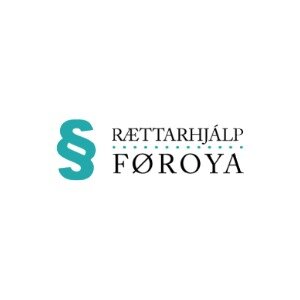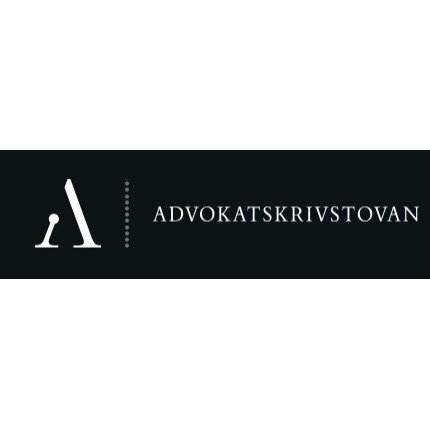Best Trusts Lawyers in Tórshavn
Share your needs with us, get contacted by law firms.
Free. Takes 2 min.
List of the best lawyers in Tórshavn, Faroe Islands
About Trusts Law in Tórshavn, Faroe Islands
The concept of trusts law is an intricate area of legal practice that involves the management and transfer of assets. In Tórshavn, the capital city of the Faroe Islands, understanding trusts is crucial, especially given the unique combination of Danish influence and local customs. Trusts in Tórshavn are used to manage assets such as property, investments, and family estates, ensuring they are safeguarded and allocated according to the trustor’s wishes. As such, navigating this legal landscape requires a solid grasp of both local and broader legal frameworks.
Why You May Need a Lawyer
Seeking legal advice in the area of trusts can be indispensable in several situations:
- Estate Planning: To ensure that your assets are distributed according to your desires after death, establishing a trust can avoid probate and provide clarity in estate planning.
- Asset Protection: Trusts can offer protection from creditors, ensuring that your assets are preserved for your beneficiaries.
- Tax Planning: Properly structured trusts may offer tax advantages, minimizing liability and enhancing the value passed on to successors.
- Charitable Intentions: Establishing a trust can facilitate philanthropic objectives, supporting charitable causes with tax benefits.
- Family Matters: Guardianship trusts can manage resources for minors or dependents with special needs, providing financial security.
Local Laws Overview
The legal environment concerning trusts in Tórshavn is shaped by a combination of local legislation and Danish law. Key aspects include:
- Source of Law: Trusts are influenced by principles found in Danish law, though local stipulations apply.
- Legal Framework: Trusts must comply with Faroese property law, demanding careful structuring to meet legal requirements.
- Registration: While not all trusts require registration, those that comprise immovable properties or require public acknowledgment should be recorded with relevant authorities.
- Taxation: Trusts may be subject to Faroese tax laws, requiring knowledgeable tax planning to ensure compliance.
Frequently Asked Questions
What is a trust?
A trust is a legal arrangement where a trustee holds and manages assets for the benefit of beneficiaries based on the terms set by the trustor.
Do I need a written document to create a trust?
Yes, creating a trust usually requires a written trust agreement that clearly outlines the terms, assets involved, and the responsibilities of the trustee.
Can I change the beneficiaries of my trust in Tórshavn?
Yes, if the trust is designed to be revocable, you can change beneficiaries. However, in an irrevocable trust, changes may not be possible without legal proceedings.
How are trust funds managed?
Trust funds are managed by the trustee, who exercises fiduciary responsibility to act in the best interests of the beneficiaries, following the stipulations of the trust agreement.
What happens if a trustee does not act in accordance with the trust?
If a trustee breaches their duties, they can be held legally accountable, and beneficiaries might seek legal action to claim damages or remove the trustee.
Are trusts private or public records in the Faroe Islands?
Most trusts are private; however, certain information may be required to be public, particularly if it involves land registration or fulfills specific legal criteria.
What are common challenges when setting up a trust?
Common challenges include ensuring the trust complies with local law, correct identification of beneficiaries, and clear designation of trustee responsibilities.
Can foreigners set up a trust in the Faroe Islands?
Foreigners can establish trusts, but they may encounter additional legal or residency requirements, necessitating legal consultation.
How do taxes affect trusts in Tórshavn?
Trusts may be subject to Faroese tax laws, impacting income generated by trust assets and distributions made to beneficiaries.
Can a trust be challenged in court?
Yes, a trust can be contested in situations such as concerns about the trustor's capacity, undue influence in the creation, or improper execution by the trustee.
Additional Resources
For more information and assistance, consider the following resources:
- The Faroese Financial Supervisory Authority, which can provide guidance on compliance and regulatory requirements.
- Legal Consultations at local law firms specializing in estate and trust law to obtain personalized advice tailored to individual circumstances.
- Estate planning workshops often held around Tórshavn to educate residents on the nuances of setting up trusts.
Next Steps
If you require legal assistance with trusts, consider the following steps:
- Identify your goals for establishing or managing a trust to guide the legal consultation process.
- Gather relevant documentation, including personal identification and any existing estate plans, to present a full picture to your legal advisor.
- Reach out to a qualified lawyer in Tórshavn who specializes in trusts and estate planning for personalized guidance.
- Attend consultations to explore your options and ensure compliance with local laws.
- Regularly review your trust arrangements to adapt to any changes in laws or personal circumstances.
Lawzana helps you find the best lawyers and law firms in Tórshavn through a curated and pre-screened list of qualified legal professionals. Our platform offers rankings and detailed profiles of attorneys and law firms, allowing you to compare based on practice areas, including Trusts, experience, and client feedback.
Each profile includes a description of the firm's areas of practice, client reviews, team members and partners, year of establishment, spoken languages, office locations, contact information, social media presence, and any published articles or resources. Most firms on our platform speak English and are experienced in both local and international legal matters.
Get a quote from top-rated law firms in Tórshavn, Faroe Islands — quickly, securely, and without unnecessary hassle.
Disclaimer:
The information provided on this page is for general informational purposes only and does not constitute legal advice. While we strive to ensure the accuracy and relevance of the content, legal information may change over time, and interpretations of the law can vary. You should always consult with a qualified legal professional for advice specific to your situation.
We disclaim all liability for actions taken or not taken based on the content of this page. If you believe any information is incorrect or outdated, please contact us, and we will review and update it where appropriate.









